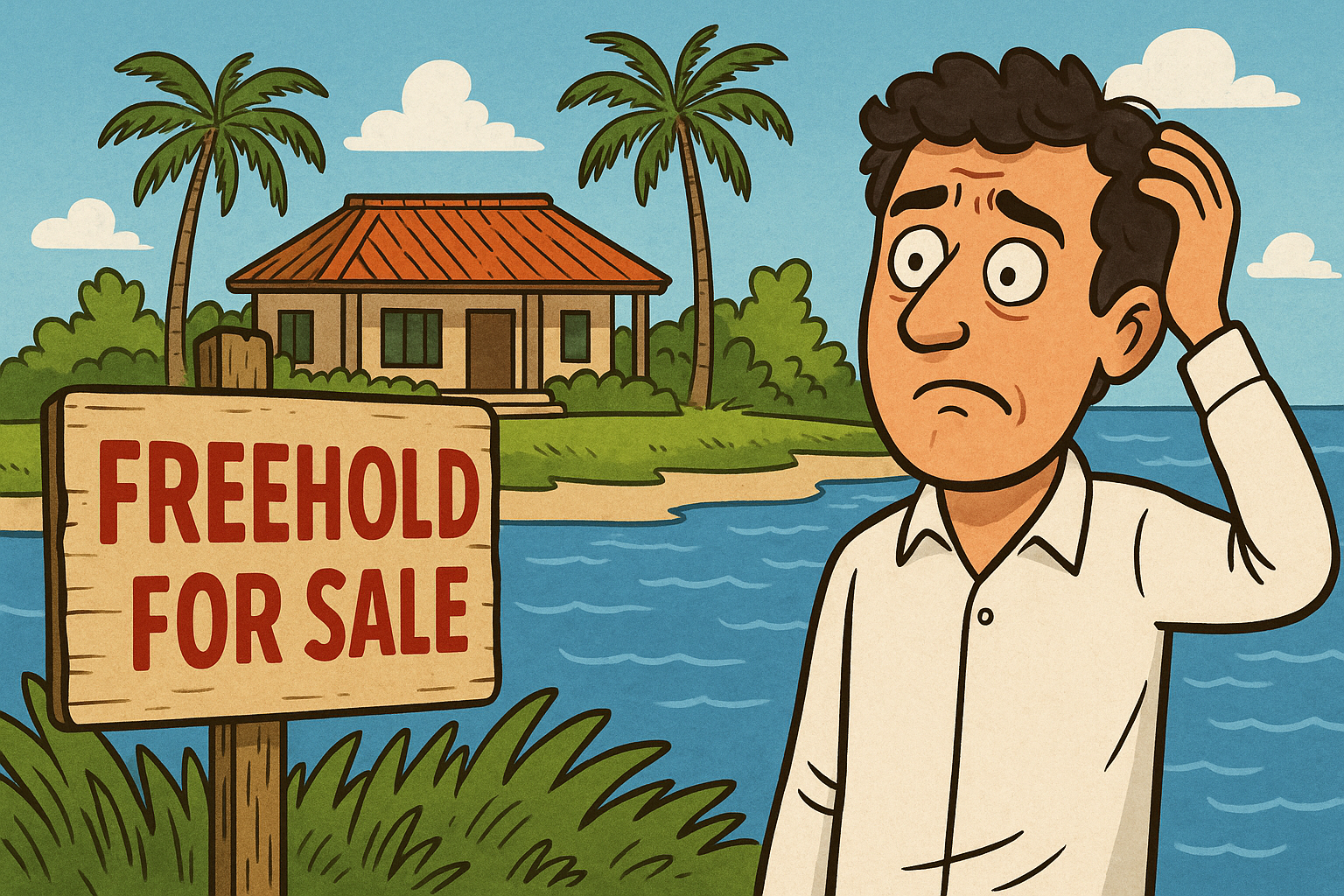Why ‘Freehold’ in Bali Isn’t What You Think It Is
Many foreign investors approach Bali property expecting “freehold” to work like it does in the U.S. or Australia. The reality is more nuanced. Under Indonesia’s Constitution, all land ultimately vests with the state, and what private parties hold are land rights (hak) with specific rules, terms, and obligations. Understanding these rights is crucial for protecting your investment.
Hak Milik: Indonesia’s Freehold-Equivalent
Hak Milik is the strongest private land right in Indonesia. It is perpetual, transferable, mortgageable, and inheritable. For Indonesian citizens, Hak Milik functions just like freehold: no expiry, no renewal requirement, and it can be held indefinitely across generations.
The nuance is that Hak Milik is legally defined as a perpetual right conferred by the state, not “absolute ownership” in the Western philosophical sense. But practically speaking, for an Indonesian citizen, it is freehold in function.
A key limitation: Hak Milik can only be held by individual Indonesian citizens. Indonesian companies—even if 100% locally owned—cannot hold Hak Milik.
Hak Guna Bangunan (HGB): The Company Title for Landed Property
HGB (Right to Build) is the standard title for companies, including foreign-owned PT PMAs. It grants the right to build and use land for an initial 30 years, extendable by 20 years, and then by another 30 years—up to 80 years total.
For landed property—villas, townhouses, residential estates—HGB is the functional ownership structure available to companies. It allows the company to develop, sell, mortgage, or transfer the property. In practice, HGB land often trades at the same price as Hak Milik, and certificates can be converted depending on who the beneficial owner is.
What happens after 80 years?
At the end of the 80-year cycle, HGB can be renewed again. The process is administrative, requiring the company to apply for a new HGB over the same parcel. There is no legal restriction preventing indefinite renewal, provided the company continues to meet requirements (notably: the land must be used productively and taxes paid).
Thus, while not “perpetual” in the Hak Milik sense, HGB is effectively a rolling, renewable form of ownership. The risks are administrative, not structural: failure to comply with obligations or a major legal overhaul could complicate renewal, but historically renewals are straightforward.
Other Rights at a Glance: Landed vs. Apartments
Landed Property
Hak Pakai (Right of Use):
Available to foreigners in their own name, usually for residential use. Hak Pakai can be granted directly over Hak Milik land, giving a strong form of use right. It is not perpetual, but renewable, and offers far greater security than leasehold.
Hak Sewa (Leasehold):
A private lease contract. Popular with foreigners, but structurally weak: it depreciates with time, lessees often cannot obtain permits in their own name, and the underlying Hak Milik or HGB can be sold, mortgaged, or foreclosed, creating risk. In Bali, Hak Milik/HGB values are roughly equal to 50 years of lease value, so the “high ROI” many investors see is often tied to this structural discount.
Apartments & Condos (Strata Title / HMSRS)
Indonesia has a strata title system:
HMSRS (Strata Title):
Individual units in apartment or condo developments are registered as Hak Milik atas Satuan Rumah Susun.
Foreigners can own strata-titled units in their own name if built on land held under HGB or Hak Pakai.
This makes strata title the simplest pathway for direct foreign ownership without a PT PMA.
Leasehold Apartments:
Some projects still market leasehold (Hak Sewa) units. These are cheaper upfront but structurally weaker and subject to time decay, just like leasehold villas.
The Investor’s Choice: Lease vs. Title
For foreigners, the decision usually looks like this:
Landed Property via PT PMA (HGB): Strong, renewable, company-held title; up to 80 years and extendable again.
Strata Title (HMSRS): Direct ownership of condos/apartments in your own name.
Hak Pakai over Landed Property: Secure personal-use right, renewable, simpler than leasehold.
Leasehold (Hak Sewa): Lowest barrier to entry but weakest in rights and long-term security.
Why “Freehold vs Leasehold” Misses the Point
Foreign discussions of Bali property often get stuck on whether something is “freehold” or “leasehold.” The reality is more sophisticated:
Hak Milik is freehold-equivalent for Indonesian citizens.
HGB is the long-term, renewable company title, suited to foreign investment via PT PMA.
Hak Pakai and HMSRS are secure pathways for individuals, particularly foreigners.
Leasehold (Hak Sewa) is heavily discounted for a reason—it is weak.
The real focus should be: What rights does this certificate confer? Who can legally hold it? What obligations and risks are attached?
The Future: Stronger Pathways for Foreigners
Indonesia is modernizing its property framework. Hak Pakai for individuals and HGB for companies are increasingly well-structured. HMSRS (strata title) gives foreigners direct ownership options.
The savviest investors aren’t chasing “foreign freehold.” They are structuring deals within Indonesia’s legal framework—securing strong, renewable rights while benefiting from Bali’s booming market.
✅ Bottom Line:
Hak Milik = freehold-equivalent for Indonesians.
HGB = renewable 80-year company title for landed property (and extendable further).
HMSRS = strata title ownership for condos, directly available to foreigners.
Hak Pakai = a solid, renewable option for individuals.
Hak Sewa = cheap but structurally weak.
For investors, mastering these distinctions is the difference between capturing long-term value and exposing yourself to unnecessary risk.

